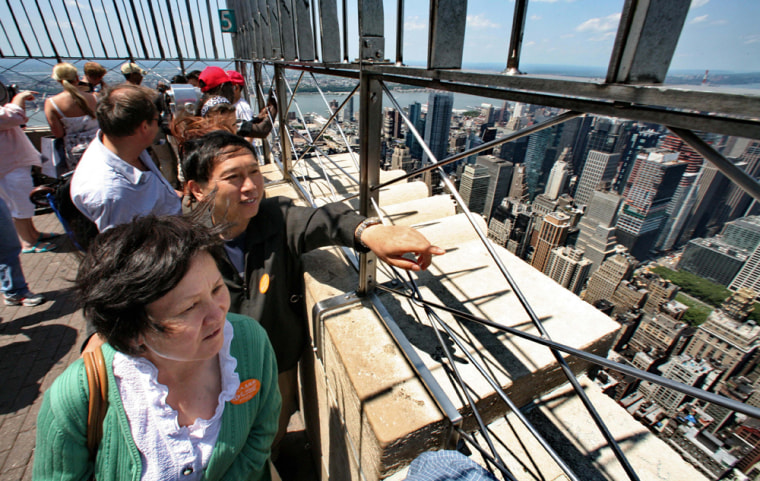New York City tourism officials have reached a deal with the Chinese government to join a select group of American destinations with permission to promote themselves in the Communist nation.
Under the agreement, the city will not be able to advertise directly to Chinese citizens, but will hire industry representatives to work with local travel agencies and other providers, George Fertitta, CEO of the city’s tourism office, said in advance of a formal announcement scheduled for Wednesday in Shanghai.
“The mandate for us is to fish where the fish are,” Fertitta said. “The Asia market is a very important market for us.”
The NYC & Co. head was to be in Japan Tuesday as part of a weeklong Asian tour to announce the launch of operations in Shanghai, Tokyo and in Seoul, South Korea. The openings, which add to 11 other international NYC & Co. locations, are meant to help reach Mayor Michael Bloomberg’s goal of bringing 50 million tourists to the city each year by 2015.
With the number of Chinese traveling from the mainland each year expected to nearly triple to 100 million people by 2020 — and with China’s growing middle class increasingly able to afford the trip — New York is eager to profit from the burgeoning tourist boom.
The representation in Shanghai is meant in part to help position the city for an anticipated agreement between U.S. officials and the Communist nation that would further ease Chinese travel to the United States, Fertitta said.
“When that happens, we want to make sure that everyone sees that our arms are wide open for the Chinese travelers,” said Fertitta, who is charged with growing an industry that already brings an estimated $24 billion into the city each year.
New York City joins San Francisco, Los Angeles, Nevada and Hawaii, which have already opened offices or hired representatives in China.
Such individual arrangements are necessary because China has not awarded the U.S. “approved destination status,” a designation that would facilitate group travel to the U.S. and allow tourism advertising directly to the Chinese public.
